READY TO GET STARTED?
REQUEST A FREE ESTIMATE
Fill out the form below or call (888) 466-7849 for a free, no-obligation estimate.
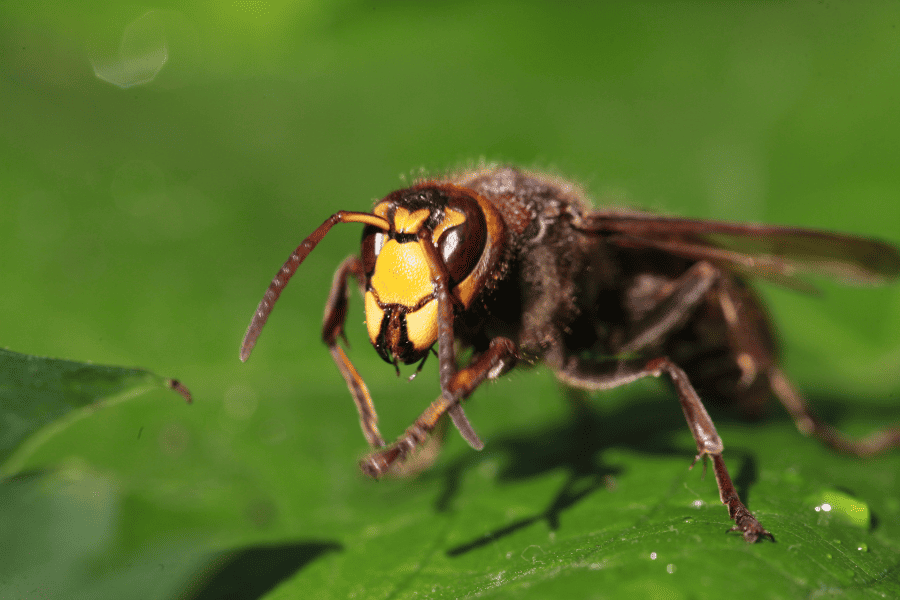
Stinging pests can be a real nuisance, and in some cases, a danger to your health. From hornets and wasps to fire ants, these pests can leave painful stings that can cause itching, swelling, and in severe cases, anaphylaxis. Let’s take a closer look at the different types of stinging pests and provide tips on how to prevent and identify them.
Hornets: Hornets are large, aggressive wasps that can pack a powerful sting. They typically build large paper nests in trees, bushes, and other outdoor locations. To prevent hornets from nesting on your property, inspect your home’s exterior regularly and seal any openings or gaps. Keep your outdoor trash cans sealed and dispose of food waste properly. If you do encounter a hornet’s nest, do not attempt to remove it yourself. Instead, call a professional pest control company.
Wasps: Wasps are similar to hornets, but they tend to be smaller and less aggressive. They can still pack a painful sting, however, and they can build their nests in a variety of locations, including under eaves, in trees, and shrubs. To prevent wasps from nesting on your property, keep your home’s exterior well-sealed, dispose of food waste properly, and keep outdoor trash cans sealed. If you do encounter a wasp nest, call a professional pest control company to safely remove it.
Fire Ants: Fire ants are small, reddish-brown ants that are known for their painful sting. They build large mounds in lawns and gardens and can be especially active during the summer months. To prevent fire ants from taking over your yard, keep your lawn well-maintained and avoid leaving piles of leaves or other debris in your yard. Treat fire ant mounds with bait or insecticide specifically designed for these pests and wear protective clothing and gloves when working in the yard.
If you discover an influx of stinging pests around your home call a professional pest control company if you do encounter a nest or infestation.
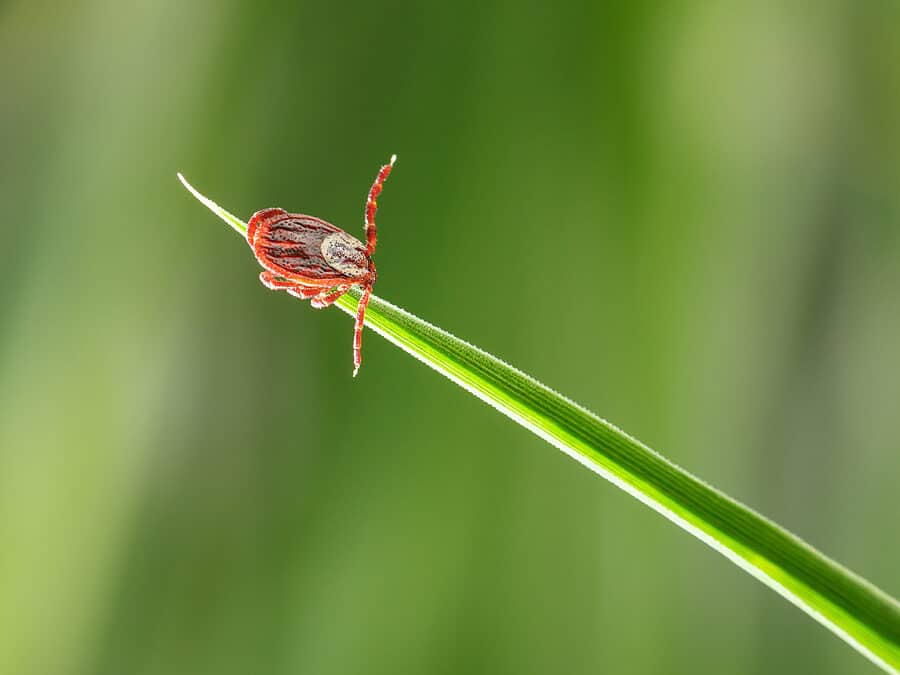
While most people associate summer with warmer weather and more time spent outdoors, it also marks peak season for many Georgia pests. Here are 5 of the most common summer pests in Georgia and how to prevent them.
Mosquito season peaks in summer (peak months are June to September) with activity at hits highest. Mosquitoes are most active at dawn and dusk. These pests transmit serious diseases to both humans and pets. They also breed in standing water found around your home. You can get rid of mosquitoes this summer by:
Ticks are active from late spring to early fall. These summer pests are known to transmit serious disease to humans and pets. They are commonly found wooded areas and areas with tall grass. Avoid ticks this summer by:
Spiders are common in summer as they are often driven from their hiding places by the warmer temperatures (e.g. your attic). While spiders are beneficial to have around as they eat other common pests found in your home, they can be a nuisance. Keep spiders at bay this summer by:
Ants emerge in the summer in search of food (particularly sweets and grease) that they take back to their colonies. This is why they are often found in kitchens. You can prevent ants by:
Stinging pests, such as wasps, hornets, bees, and yellow jackets, are prominent in the summer months. These pests will often forage for food during the warmer weather. Avoid stinging pests by:
Don’t let summer pests ruin your time outdoors. Contact your local pest control company today for a free evaluation.
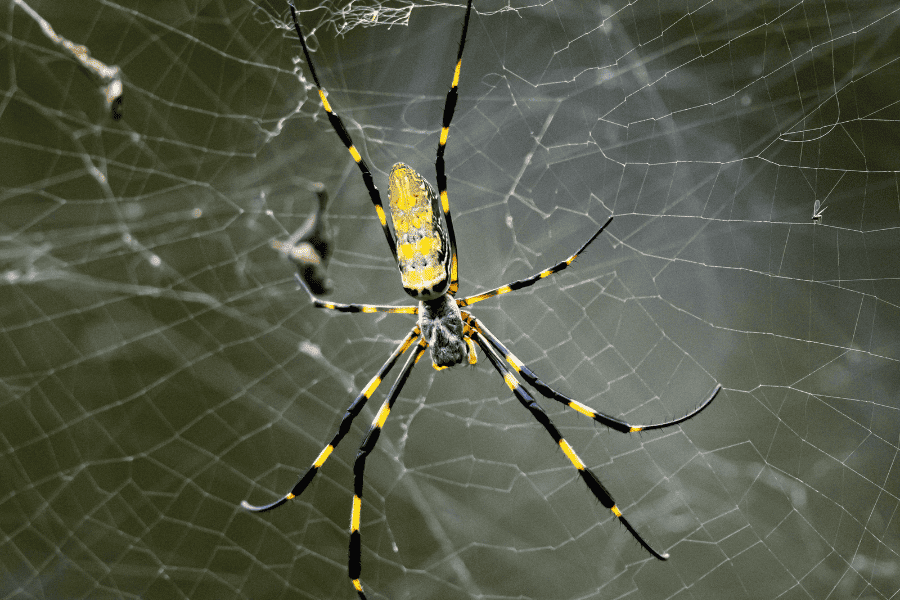
Summer is a season that brings with it many joys, such as longer days and warmer weather. Unfortunately, it also brings a variety of pests that can invade your home and make life unpleasant. Let’s discover some common summer pests and share tips for preventing them.
Ants are one of the most common pests found in homes during the summer months. They are attracted to sweet, sticky substances and can quickly become a nuisance if they find a food source in your home.
Mosquitoes are another common summer pest that can be a serious health concern. They can carry diseases such as West Nile virus and Zika virus, so it’s important to take steps to prevent them.
Ticks are small, blood-sucking pests that can transmit diseases such as Lyme disease and Rocky Mountain spotted fever. They are often found in wooded areas but can also be found in your yard if you have tall grass or brush.
Bees and wasps are important pollinators, but they can also be a nuisance and a health concern.
To prevent bees and wasps, keep your trash cans sealed and dispose of food scraps properly. If you have a nest on your property, call a professional to remove it rather than attempting to do it yourself.
Spiders are often found in dark, damp places like basements and crawl spaces. They can be beneficial by eating other pests, but some species can be dangerous if they bite.
If you have a pest problem that you can’t control on your own, contact your local professional pest control company for a customized summer pest prevention plan!
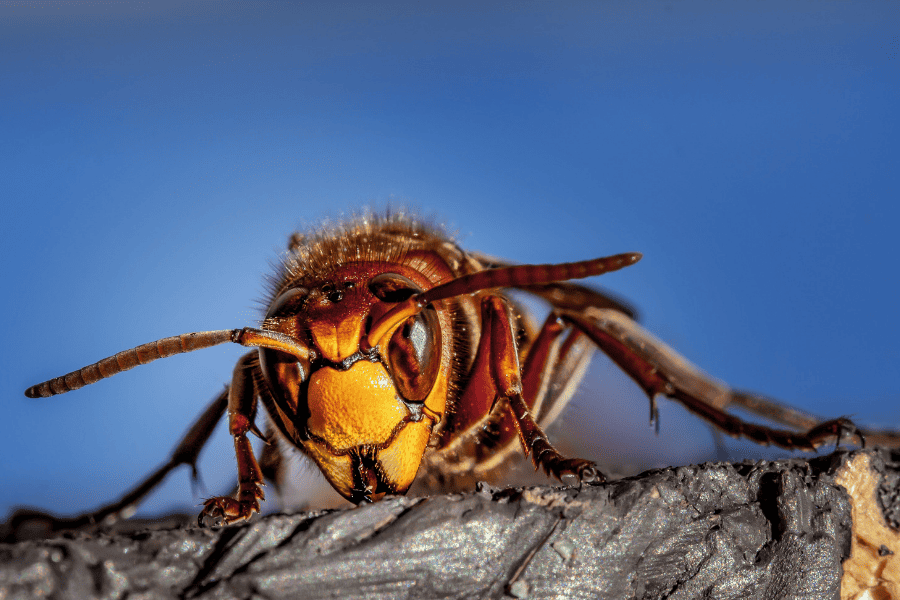
When it comes to stinging pests, there are a few common culprits that people encounter: wasps, hornets, and bees. While these insects may look similar, they have distinct characteristics that set them apart. Understanding the differences between them and knowing what to do if you encounter one can help you stay safe.
Wasps are slender, black, and yellow insects with smooth bodies and narrow waists. They are social insects that live in large nests with multiple females. While they are not typically aggressive, they will defend their nests if they feel threatened. Some species of wasps, like yellow jackets, can sting multiple times and their stings can be painful and potentially dangerous for those with allergies.
Hornets are larger than wasps and are usually black with yellow or white markings. They have a distinctive, round body shape and are known for their powerful sting. Like wasps, hornets are social insects that live in large nests. They can be aggressive if they feel their nest is being threatened, and their sting can be particularly painful.
Bees are typically plumper and fuzzier than wasps and hornets and are usually brown or black with yellow markings. Unlike wasps and hornets, bees are not naturally aggressive and will only sting if they feel threatened. Bees are important pollinators and play a vital role in our ecosystem.
If you encounter a stinging insect, it’s important to stay calm and avoid swatting or provoking it. If you are near a nest, move away slowly and quietly. If you are stung, remove the stinger by scraping it with a flat object like a credit card, wash the area with soap and water, and apply a cold compress to reduce swelling.
If you have a severe allergic reaction to a sting, seek medical attention immediately.
By understanding their behaviors and taking precautions to avoid them, we can coexist safely. If you have a problem with a nest or infestation, it is best to call your local professional pest control company for safe removal.
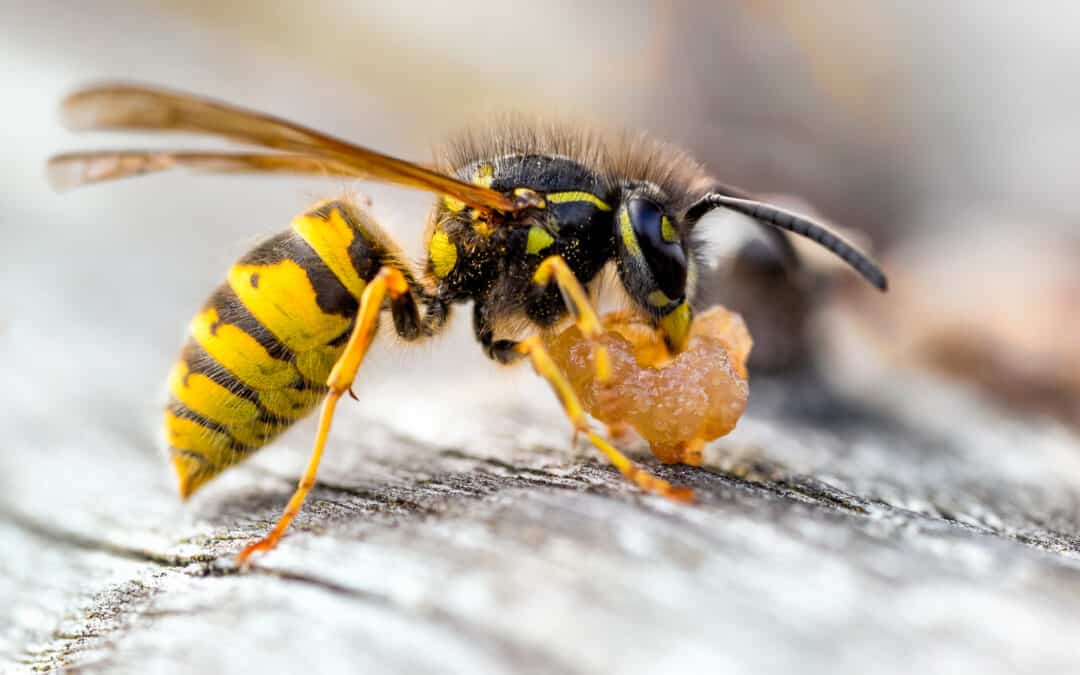
As we gear up for spring, most homeowners are looking forward to spending time with family in their yards. Unfortunately, spring pests will also emerge as the weather warms up. While spotting one near your home is not a big deal, if they’ve infested in large numbers, they can quickly become a nuisance and cause property damage. Check out our list of common spring pests and how you can avoid them.
In Alabama, termite activity increases in early spring. These pests can cause severe property damage by destroying the structural integrity of your home. Once termites infest your home, it can be extremely difficult to eliminate them, and their repair often costs billions of dollars. Common termite types include subterranean and drywood termites. Drywood termites will inhabit sound wood and will infest wood furniture. Subterranean termites need soil to live, creating mud tubes for a food source above the surface and invading the foundations of homes.
Ants thrive in humid, hot weather. During the spring, ants are looking for any food source for their nests, often invading our homes to find it. These pests can be extremely persistent and take over our yards. Common ant species found in the Alabama area include fire ants, pavement ants, crazy ants, and more. You can often find these ants near their food sources, behind window frames, under appliances, in the bathroom, and the kitchen.
Wasps are common during the springtime and can become a problem when they have nested on your property. There are several wasp types common to the Alabama area, including the blue-winged wasp, cuckoo wasp, spider wasp, paper wasp, and more. Depending on the type of wasp, you can find their nests underground or hanging from branches, eaves, door frames, railings, and more. While not always aggressive towards humans, wasps will attack if their nest is disturbed. If stung, it can be extremely painful and will sometimes need medical attention, depending on the severity.
Alabama’s weather during the spring months is hot and humid, making it the ideal environment for mosquitoes to breed. Mosquitoes only need a small amount of water to lay their eggs, and if found on your property, you will soon have a full-blown blown mosquito infestation. Mosquitoes can not only be a major nuisance if they invade your yard, but they also pose a health risk to humans, dogs, cats, and horses by transmitting diseases. Mosquitoes need a blood meal to survive, often looking at us and our pets to get it. If they feed off a diseased host, they can spread pathogens that can infest other hosts they bite later.
Being on top of pest prevention is one of the best ways to keep spring pests from invading your yard. Consider the following do-it-yourself preventative measures for keeping pests away:
Don’t let these common spring pests invade your home! If you notice an increase in pest activity or want to get ahead of prevention, consider contacting your local pest control company which can help identify entry points and pests, recommend a treatment plan, and prevent them in the future.